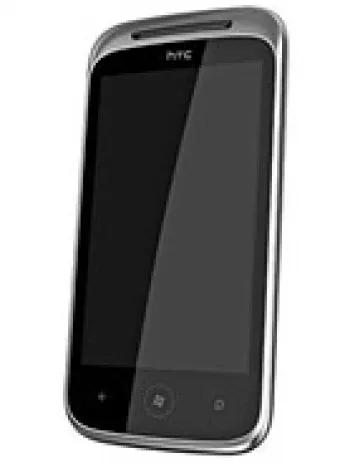
Overview of HTC Paradise
The HTC Paradise was a device that captured a lot of attention despite being cancelled before an official release. It represents a fascinating chapter in the history of mobile technology with its unique blend of specifications aimed at combining both traditional keyboard functionality with the emerging touchscreen trend of that time. Below is a detailed discussion of the various aspects and features of the HTC Paradise.
Design and Build
The HTC Paradise showcased a traditional QWERTY keyboard, designed to appeal to users who preferred physical buttons for typing. The keyboard was likely a slide-out form factor, a popular design choice during the era to maximize screen space while still offering tactile feedback for typing. Designed to accommodate a mini-SIM, it was crafted with usability in mind, though no specific details on dimensions or weight were released. Its body was depicted in a classic black finish, maintaining a sleek and professional look.
Display
The display on the HTC Paradise was a 3.2-inch TFT screen that supported up to 256K colors, making it suitable for clear viewing of images and videos, albeit with limited vibrancy compared to more advanced screen technologies like AMOLED. With a resolution of 320 x 480 pixels, the screen had a pixel density of approximately 180 ppi, which was fairly standard for smartphones in its class during that period.
Camera Capabilities
The main camera on the HTC Paradise was a single 3.15 MP shooter capable of capturing images and basic video clips. Though modest by today's standards, at the time of its intended release, this specification was competent for casual photography needs. However, the device lacked a selfie camera, a feature that was not yet ubiquitous for smartphones.
Network and Connectivity
The HTC Paradise supported both GSM and HSPA network technologies, covering 2G bands of GSM 850, 900, 1800, and 1900 frequencies, as well as 3G bands including HSDPA 850 and 1900. This offered decent network compatibility for both voice and data services, facilitating good connectivity across various regions. Wireless connectivity was bolstered by Wi-Fi 802.11 b/g and Bluetooth 2.1 with A2DP support, making it easy to connect to wireless networks and other Bluetooth-enabled devices. The device also featured a microUSB 2.0 port for wired connectivity and charging.
Platform and Performance
The HTC Paradise was planned to operate on the Android OS, which would have provided access to a wide array of applications and services available through the Android ecosystem. However, specific details about the processor and RAM capacity were not disclosed. The presence of a dedicated microSDHC card slot would have allowed users to expand storage, which was a valuable feature for handling additional applications, media, and documents.
Battery and Power Management
Equipped with a removable Li-Ion 1200 mAh battery, the HTC Paradise would have offered reasonable uptime, though the power capacity suggests a need for frequent recharging for any heavy users. The removable nature of the battery is an advantageous feature that allows users to carry spares for extended usage without access to charging facilities.
Additional Features
In terms of auditory features, the HTC Paradise was outfitted with a loudspeaker and a 3.5mm headphone jack, catering to users' audio preferences for both public and private listening. An accelerometer sensor was also included, enhancing the user experience with features such as auto-rotation of the display. The browser supported HTML, which was standard for web browsing at the time, allowing users to access a variety of online content directly from the device.
Conclusion: Legacy of a Cancelled Device
Although the HTC Paradise was never officially launched, it remains a point of interest for technology enthusiasts and those studying the evolution of smartphones. Its combination of a physical QWERTY keyboard with a touchscreen interface reflects the transitional era in mobile design. While the device did not enter the market, its planned features and specifications illustrate the creative experimentation and technological advancements characteristic of the smartphone industry during that time.
HTC Paradise Key Features
- GSM / HSPA technology for wide network compatibility.
- QWERTY keyboard for easy typing and messaging.
- 3.2-inch TFT display with 256K colors for clear visuals.
- Android OS for access to a wide range of apps and features.
- Expandable storage with microSDHC card slot.
- 3.15 MP main camera with video recording capability.
- Loudspeaker and 3.5mm jack for audio flexibility.
- Wi-Fi 802.11 b/g for wireless connectivity.
- Bluetooth 2.1 with A2DP for wireless accessory connections.
- MicroUSB 2.0 for data transfer and charging.
- Accelerometer sensor for auto-rotation and motion detection.
- Removable Li-Ion 1200 mAh battery for ease of replacement.
HTC Paradise Key Disadvantages
- Cancelled status - The device was never officially released.
- Lack of release specifications - Dimensions and weight are unspecified.
- Display limitations - Only supports 256K colors with relatively low resolution (~180 ppi density).
- Limited camera capabilities - Only a 3.15 MP main camera and no selfie camera.
- Basic connectivity - Uses older Bluetooth 2.1 technology and lacks advanced positioning features.
- Battery capacity - Equipped with a modest 1200 mAh battery which may not support long usage times.
- Outdated Android version - Likely to have shipped with an outdated version of Android OS.
View Also
More Phones
All Rights Reserved +14266 Phones © Mobilawy 2025

























